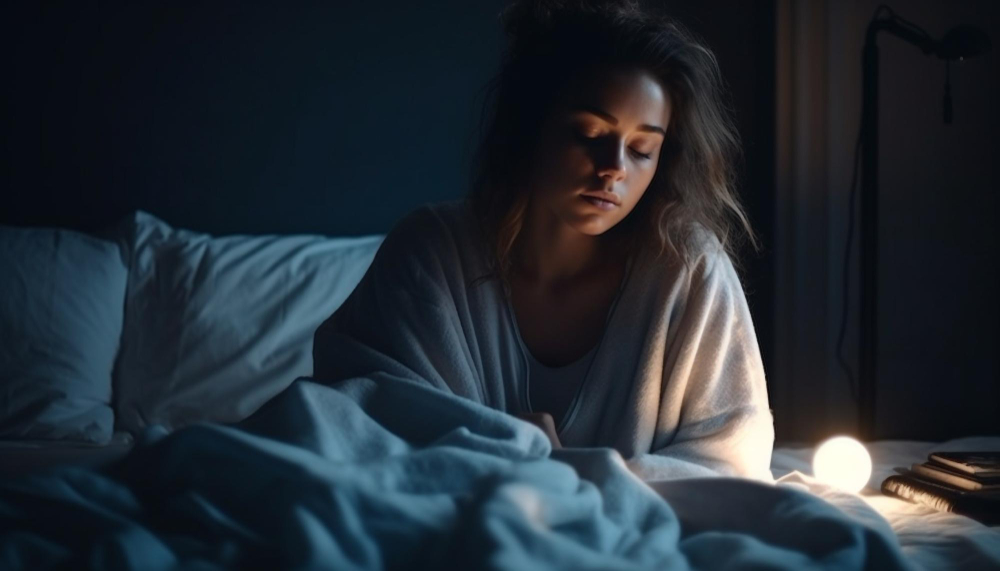Yes, you read that right. While you’re scrolling Instagram at midnight, I’m already eight hours into my beauty sleep. And honestly? It’s the best life hack I’ve ever stumbled upon.
The Night I Accidentally Became a Morning Person
It started with a power outage last October. My WiFi was down, my phone was dying, and I had nothing better to do than actually go to bed at a reasonable hour. I figured I’d wake up at my usual 7 AM, maybe catch up on some reading.
Instead, I woke up at 5:30 AM feeling like I’d been given a superpower.
I wasn’t groggy. I wasn’t hitting snooze seventeen times. I was just… awake. Alert. Ready to conquer the world before most people had even thought about their first cup of coffee.
That was six months ago, and I haven’t looked back since.
The Science Behind the Magic (Without the Boring Lecture)
Here’s the thing that nobody talks about: when you go to bed between 9 and 10 PM, you’re more likely to reach stages of deep, slow-wave sleep. This isn’t just about getting more hours of sleep – it’s about getting better quality sleep.
Think of it like this: your brain has a cleaning crew that only shows up during certain hours. When you’re constantly going to bed at midnight or later, you’re basically firing half the night shift. Your mental maintenance crew doesn’t get enough time to do their job properly.
The result? You wake up feeling like your brain is running on dial-up internet while everyone else seems to have fiber optic connections.
What Actually Happens When You Go to Bed Early
Your Morning Transforms Into Something Magical
Remember those mornings when you’d drag yourself out of bed, stumble to the coffee maker, and spend the first two hours of your day in a zombie-like state? Those become a distant memory.
When you consistently go to bed early, your mornings become this peaceful, productive sanctuary. You have time to actually sit with your coffee instead of chugging it while running out the door. You can read a few pages of that book that’s been collecting dust on your nightstand. You might even discover that you enjoy morning workouts when you’re not forcing yourself through them in a sleep-deprived haze.
Your Evenings Become Intentional
Here’s the plot twist: when you know you’re going to bed at 9:30, you can’t mindlessly scroll through social media until your eyes burn. You become incredibly intentional about how you spend those evening hours.
That Netflix show you’ve been binge-watching? You’ll either commit to watching it properly or realize it wasn’t that important to begin with. Those late-night online shopping sprees? They disappear along with your impulse buying and buyer’s remorse.
Your Weekend Energy Levels Skyrocket
The most surprising benefit? Your weekends stop feeling like recovery time. When you’re consistently well-rested, Saturday and Sunday become actual days for living, not just for catching up on sleep and nursing a caffeine headache.
You’ll find yourself saying yes to morning hikes, brunch dates, and all those weekend activities you used to decline because you “just couldn’t” get up early enough.
The Social Hurdles (And How to Navigate Them)
Let’s be real: going to bed at 9:30 PM comes with some social challenges. Your friends will tease you. You’ll miss some late-night gatherings. People will call you “grandma” (I’ve heard it all).
But here’s what I’ve learned: the people who matter will adjust. They’ll start suggesting earlier dinner times. They’ll understand when you leave parties at 9 PM. Some of them might even get curious enough to try it themselves.
And the ones who give you endless grief about prioritizing your well-being? Maybe it’s time to examine whether those relationships are serving you anyway.
Making the Transition (Because Going Cold Turkey Is Brutal)
Don’t try to jump from midnight to 9:30 PM overnight. I learned this the hard way during my first week when I spent two hours staring at the ceiling, mentally composing tomorrow’s to-do list.
Instead, try the 15-minute rule: go to bed 15 minutes earlier each night until you reach your target time. It takes patience, but your body will thank you for the gradual adjustment.
Create a Wind-Down Ritual That Actually Works
The hour before 9:30 becomes sacred time. This is when you start dimming the lights, putting away screens (yes, really), and doing something genuinely calming. For me, it’s usually a hot shower, some light stretching, and reading fiction – nothing work-related or stimulating.
Research shows that screen time at bedtime results in significantly higher risk of sleep issues, so those late-night Instagram sessions are doing you no favors anyway.
The Productivity Payoff
Here’s where things get interesting. When you’re consistently well-rested, your work performance doesn’t just improve – it transforms. You stop relying on caffeine to function. Your decision-making becomes sharper. You can tackle complex tasks during your peak morning hours instead of pushing through them during your afternoon energy crash.
I used to be someone who needed three cups of coffee just to feel human. Now I have one cup because I enjoy it, not because I need it to survive the day.
The ripple effects are incredible. Studies suggest that morning-type individuals report higher levels of positivity and well-being, and honestly, I can see why. When you start your day feeling energized and in control, it sets a completely different tone for everything that follows.
What About Your Social Life?
This is the question everyone asks, and I get it. It seems like choosing between your health and your social connections.
But here’s the reality: most worthwhile social activities don’t require staying up until midnight. Dinner parties can start at 6 PM instead of 8 PM. Game nights can be afternoon affairs. Weekend trips become more enjoyable when everyone is well-rested instead of operating on three hours of sleep and pure adrenaline.
You’re not missing out on life by going to bed early – you’re showing up for it more fully during the hours when you’re awake.
The Long Game
Six months into this experiment, I can’t imagine going back to my old schedule. The benefits compound over time. Your immune system gets stronger. Your skin looks better (yes, beauty sleep is a real thing). Your mental clarity improves. Your mood stabilizes.
It’s not just about feeling better in the morning – though that’s certainly a perk. It’s about having the energy and mental capacity to show up as the person you want to be, consistently, every single day.
Getting Started Tonight
If you’re reading this and thinking “maybe I should try this,” here’s your action plan:
Start with just one week. Set a gentle alarm for 9 PM as your “start winding down” reminder. Put your phone in another room. See what happens.
You might discover, like I did, that this isn’t about becoming a different person – it’s about becoming the most energized, clear-headed, productive version of yourself.
And if your friends tease you about your “grandma bedtime”? Just smile and remember that you’ll be the one who’s bright-eyed and ready for adventure while they’re still trying to function on four hours of sleep and a prayer.
The 9:30 PM bedtime isn’t about restriction – it’s about freedom. Freedom from fatigue, from afternoon crashes, from starting every day behind the eight ball.
Try it for a week. What’s the worst that could happen? You might actually get the best sleep of your adult life.

Disclaimer: The information provided in this article is for educational and lifestyle purposes only and should not be considered professional medical advice, diagnosis, or treatment recommendations. Individual sleep needs vary, and what works for one person may not work for another. If you have persistent sleep issues or underlying health conditions, please consult with a healthcare professional. The author is not a medical professional, and this content is based on personal experience and general wellness information available through various lifestyle and wellness sources.



